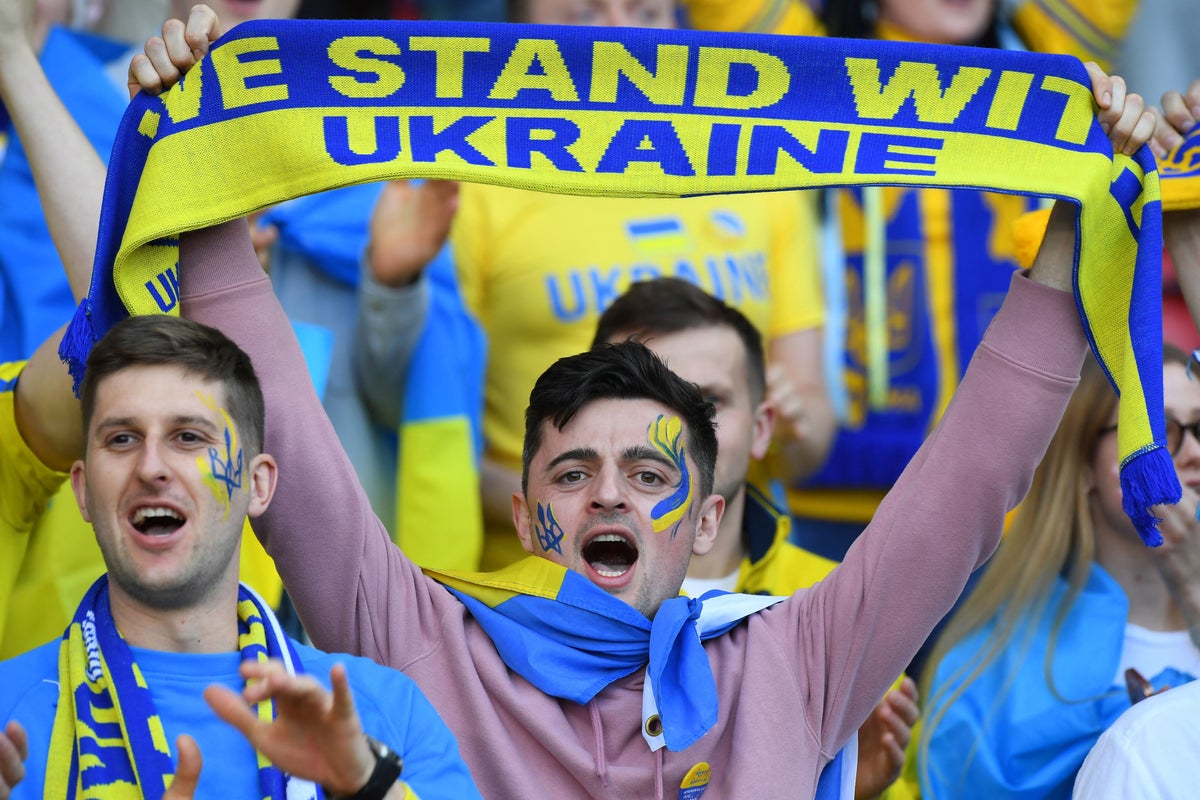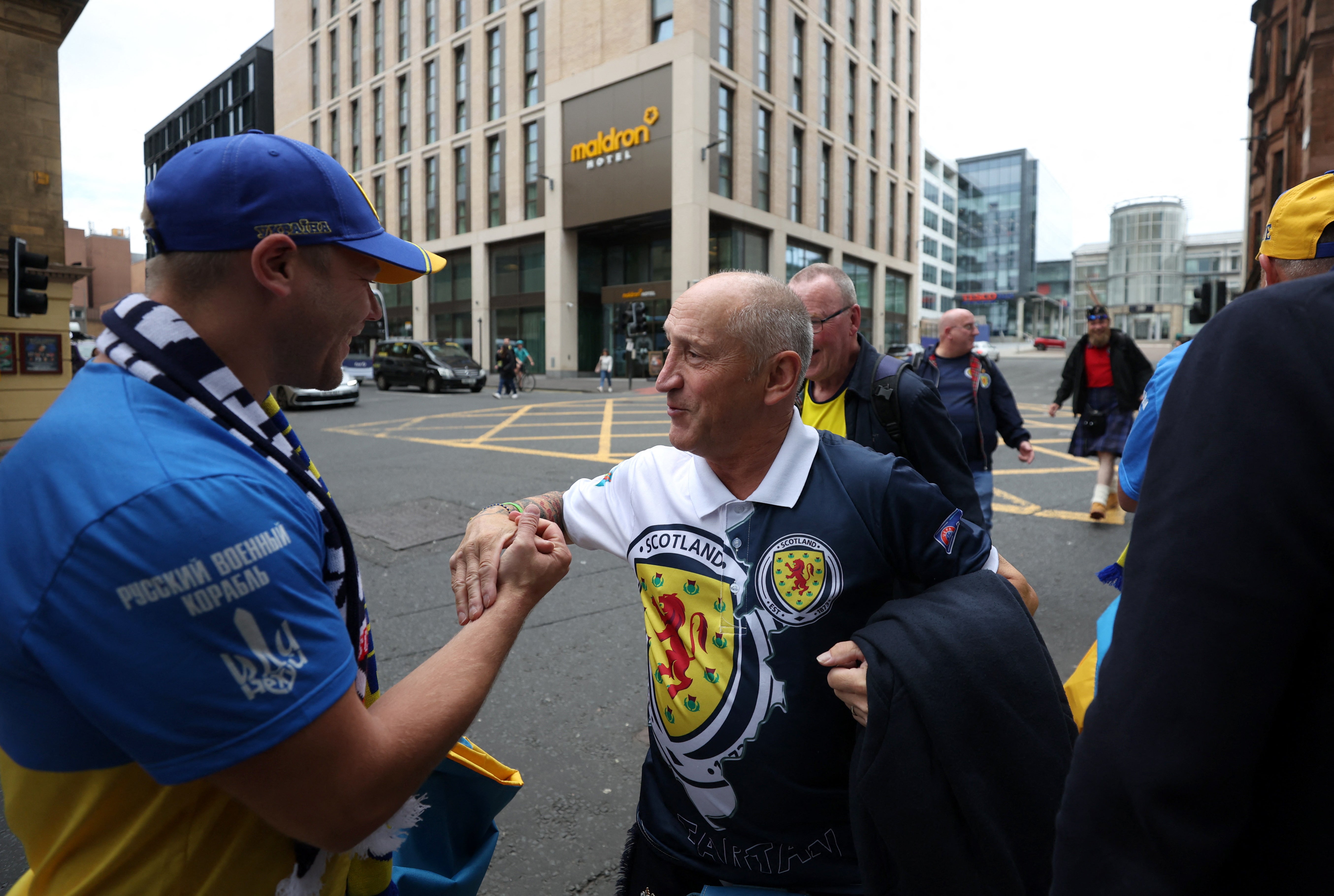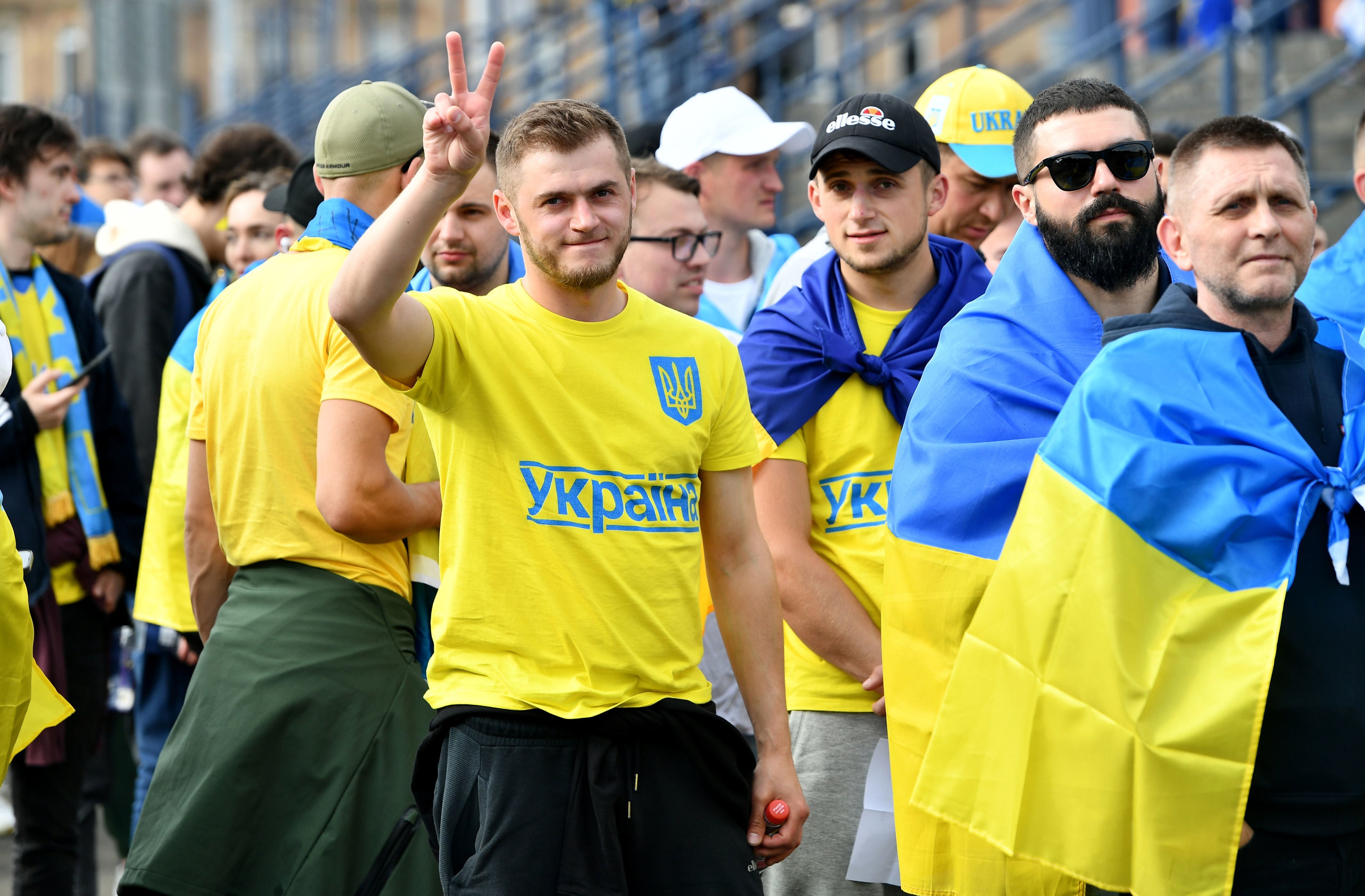
To compete against Ukraine in 2022 is a delicate thing. What is a worthy victory, and what is actually fair? The mammoth public vote for the Ukrainian Eurovision entry was one thing, but international football raises emotions (and tempers) to a whole other level.
Fortunately for Scotland, facing a World Cup qualifier against the Ukrainians, the atmosphere at Hampden Park was not of pity, but joy.
Artem, a young Ukrainian who has lived in Edinburgh since long before Russia’s invasion, said the game means a lot more than simply proving that Ukraine and Ukrainians are surviving.
“Being in Scotland, there’s not been a lot of opportunities to celebrate being Ukrainian without the backdrop of the war,” he explained. “For example, there’s quite a lot of events, like demonstrations and protests and sort of gatherings, with a lot of refugees attending these in a few different cities in Scotland, just wherever they settled.
“But these are difficult to attend, not because of logistics, but because it’s mentally difficult to confront the reality of a lot of these people, and to process everything that’s happening. So a game like this is a great opportunity to celebrate being Ukrainian, and not necessarily forget about the war, but just be there.”

The war aside, this was still a football game, meaning joyful is as joyful does. A great prize was dangled in front of Scotland - a win would have put them closer to their first World Cup since the 1998 tournament.
But in the end it was not to be, with Ukraine securing a 2-0 commanding lead that led ultimately to a 3-1 victory that sent the estimated 3,500 fans at the stadium wild.
Earlier, many at Hampden Park had a tear in their eye as Ukraine’s team entered the pitch, each draped in a Ukrainian flag, prompting a deafening roar.
Ukraine’s national anthem was roundly applauded by the Tartan Army who then belted out Flower of Scotland before the long-awaited game got going, if rather nervously.
Back in December, before Russia began its brutal and unprovoked assault on its neighbour, it was the Ukrainian manager, Oleksandr Petrakov, who had to consider Scotland’s feelings after he was seen jumping for joy when he found out who his team had been drawn against.
“Yes, I was joyful when the draw was made,” he later said, “but that was a natural reaction because we weren’t drawn against Italy or Portugal. We weren’t seeded. We could have had a horrible draw, so of course I was happy that we got Scotland. We avoided the really big teams.

“That’s all. It wasn’t a slight on Scotland. I apologise if people thought I looked too happy!”
The world has changed since then, not least by opening its arms to Ukrainian refugees – though sign-ups to the UK’s already muddled sponsorship scheme have slowed down, meaning that Ukrainians leaving the areas currently under fire are at a huge disadvantage compared with the first wave.
But the goodwill, for what it’s worth, remains, and sport will be the better for it. To Artem, some of whose family are now gathered together for the first time since the conflict started, the game and its outcome transcend all that’s happened since before Russia started the war.
“For me, it’s celebrating belonging to both the Ukrainian community and the Scottish community,” he said. “It’s not really about who’s winning. Because after all, sport is more a celebration of one of the things it means to be human.”







